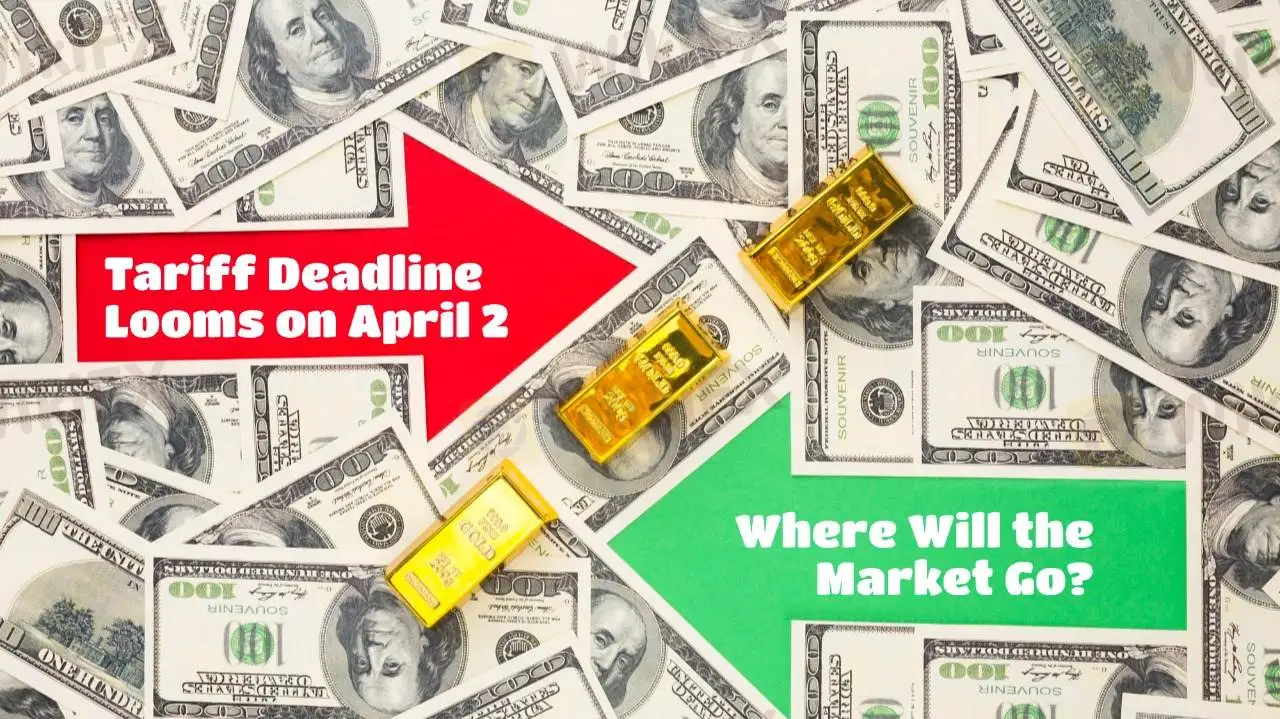简体中文
繁體中文
English
Pусский
日本語
ภาษาไทย
Tiếng Việt
Bahasa Indonesia
Español
हिन्दी
Filippiiniläinen
Français
Deutsch
Português
Türkçe
한국어
العربية
Tariff Deadline Looms on April 2: Where Will the Market Go?
Abstract:Global markets hold their breath as April 2nd approaches, a potential turning point in the battle between bulls and bears.

On April 2nd, the U.S. will unveil its potentially game-changing tariff policy that could reshape global trade. The Trump administration has positioned this policy as a key negotiating tool, deliberately shrouding it in uncertainty. Analysts suggest that the White House is using this ambiguity to gain an upper hand in future negotiations.
This strategy has not only left businesses uncertain about future planning but also kept market sentiment under pressure, even as major U.S. stock indices have rebounded over the past week. Investors remain cautious, awaiting clearer signals.
While major indices like the S&P and Nasdaq have seen modest gains recently, investors remain wary of the implications of the upcoming tariffs. Goldman Sachs analysts predict that market sentiment will continue to be influenced by both tariff details and corporate earnings in the short term.
While the White House anticipates that market volatility will ease after April 2, many institutions are cautious about the long-term effects. The tariffs could lead to rising consumer prices, squeezed corporate profits, and suppressed investment sentiment, which may slow down global economic recovery.
Analysts widely caution that once the tariff policy is officially enacted, it could trigger a new wave of market adjustments. Academy Securities strategists believe that global stock markets may face sell-off pressures following the resolution of tariff uncertainties.

Disclaimer:
The views in this article only represent the author's personal views, and do not constitute investment advice on this platform. This platform does not guarantee the accuracy, completeness and timeliness of the information in the article, and will not be liable for any loss caused by the use of or reliance on the information in the article.
Read more

Why Trade Agreements Matter to Nations
In today’s interconnected world, trade agreements serve as the foundation for stable and predictable international commerce.

Trade Fights Are Heating Up—What Happens Next?
Global financial markets have become increasingly reactive to even minor developments in international trade talks.

Juno Markets Upgrades to FYNXT PAMM
Juno Markets has successfully upgraded its managed account infrastructure by integrating FYNXT’s Percent Allocation Management Module (PAMM) system.

Italy’s CONSOB Blocks Sites of ITradingFX and NEX TRADE in Latest Crackdown
Italy’s Companies and Exchange Commission (CONSOB) has ordered Internet service providers to block access to nine unauthorized investment websites, including “ITradingFX” and “NEX TRADE,” as part of its ongoing effort to curb abusive financial services Consob.
WikiFX Broker
Latest News
Five UK Financial Firms Collapse, FSCS Offers Support for Affected Clients
Why Trade Agreements Matter to Nations
Non-Existent Online Scheme Took Away RM580,000
RM15 Million Gone in Fake Investment Scam
Crypto Traders Hit by Scam Using Fake Regulatory Documents, MFSA Cautions
Trade Fights Are Heating Up—What Happens Next?
Juno Markets Upgrades to FYNXT PAMM
Think Scams Won’t Happen to You? That’s Exactly What Scammers Count On
Beware of New Scam Tactics Lurking on WhatsApp!!
Italy’s CONSOB Blocks Sites of ITradingFX and NEX TRADE in Latest Crackdown
Currency Calculator


